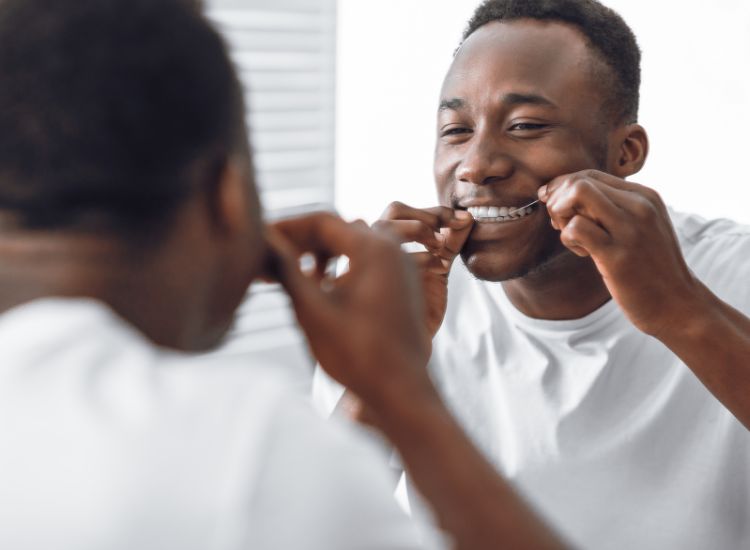What Are Implant-Supported Dentures?
Revolutionizing Smiles: Exploring Implant-Supported Dentures in Colorado Springs
In the realm of modern dentistry, implant-supported dentures represent a significant advancement in restoring smiles and enhancing oral health. At Kissing Camels Family Dentistry in Colorado Springs, CO, we specialize in providing comprehensive dental solutions, including implant-supported dentures. This blog post delves into the benefits, procedure, and reasons why Kissing Camels Family Dentistry is the best choice for implant-supported dentures in Colorado Springs.
Understanding Implant-Supported Dentures
Implant-supported dentures are a type of overdenture that is secured in place by dental implants rather than resting on the gums like traditional dentures. This innovative approach combines the stability of dental implants with the affordability and functionality of dentures, providing patients with a reliable solution for missing teeth.
The Benefits of Implant-Supported Dentures
Choosing implant-supported dentures offers numerous advantages:
1. Enhanced Stability and Comfort: Unlike traditional dentures, which can slip or move while eating or speaking, implant-supported dentures are securely anchored in place by dental implants. This stability enhances comfort and confidence when performing daily activities.
2. Improved Oral Health: Dental implants stimulate the jawbone, preventing bone loss that occurs with tooth loss. This helps maintain facial structure and prevents the sunken appearance often associated with missing teeth.
3. Natural Look and Feel: Implant-supported dentures are customized to match the shape, size, and color of your natural teeth, providing a natural-looking smile. They restore chewing function and allow you to enjoy a wide variety of foods without restriction.
The Implant-Supported Dentures Procedure
At Kissing Camels Family Dentistry, our skilled dental team follows a comprehensive procedure to ensure optimal results for implant-supported dentures:
1. Initial Consultation and Treatment Planning: During your initial consultation, our dentists will evaluate your oral health, discuss your goals, and determine if implant-supported dentures are the right option for you. We will create a personalized treatment plan tailored to your specific needs.
2. Implant Placement: The first step involves placing dental implants into the jawbone. The number of implants needed will depend on the individual’s jawbone density and the specific denture design. We use local anesthesia to ensure your comfort during this procedure.
3. Healing and Osseointegration: After implant placement, a healing period of several months is required to allow the implants to fuse with the jawbone through a process called osseointegration. This provides a stable foundation for the dentures.
4. Attachment of Dentures: Once osseointegration is complete, abutments are attached to the implants. These abutments serve as connectors between the implants and the dentures. We securely attach customized dentures to the abutments, completing the restoration.
Why Choose Kissing Camels Family Dentistry for Implant-Supported Dentures in Colorado Springs?
Kissing Camels Family Dentistry stands out as the premier choice for implant-supported dentures in Colorado Springs for several reasons:
Expertise and Experience: Our dentists have extensive training and experience in implant dentistry, ensuring precise placement and optimal results.
State-of-the-Art Facilities: We utilize advanced dental technology and high-quality materials to deliver superior dental care and long-lasting dentures.
Comprehensive Care: From the initial consultation to the final restoration, we provide comprehensive dental services in a comfortable and welcoming environment.
Patient-Centered Approach: We prioritize your comfort and satisfaction, ensuring that you receive personalized care and achieve the smile you desire.
Maintaining Your Implant-Supported Dentures
Proper care is essential for the longevity and success of your implant-supported dentures. Here are some tips to maintain your new smile:
Practice Good Oral Hygiene: Brush and floss regularly to keep your gums and remaining teeth healthy.
Attend Regular Dental Check-Ups: Visit Kissing Camels Family Dentistry for routine dental examinations and professional cleanings to monitor the health of your dentures and implants.
Avoid Hard Foods and Habits: Be mindful of chewing hard objects or habits like nail biting, as they can damage your dentures and implants.
Transform your smile with implant-supported dentures at Kissing Camels Family Dentistry in Colorado Springs, CO. Schedule your consultation today to learn more about how this revolutionary dental solution can enhance your quality of life and restore your confidence. Trust the best dentist in Colorado Springs for your dental care needs.











